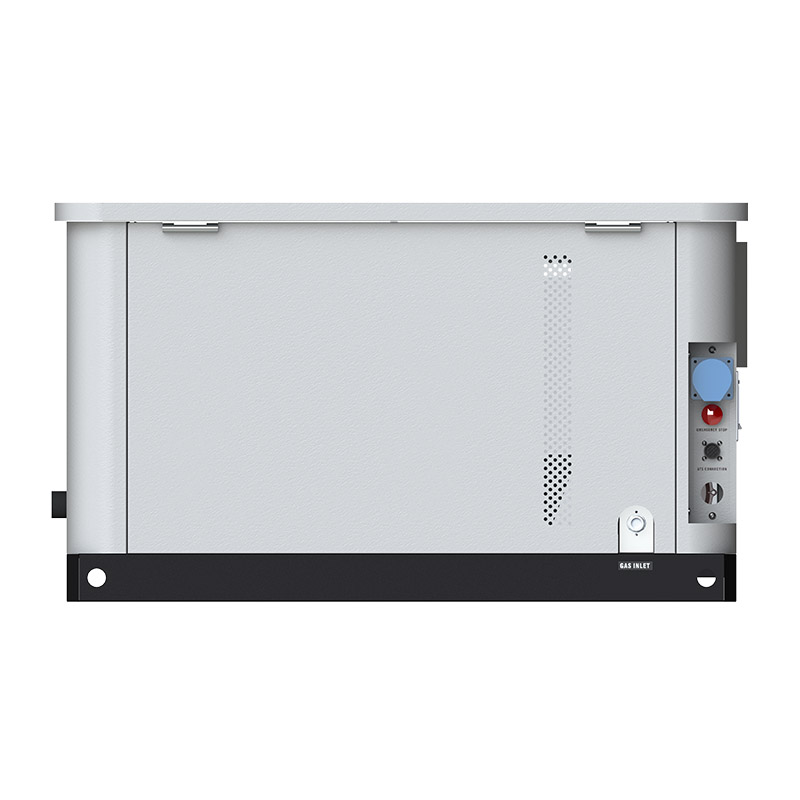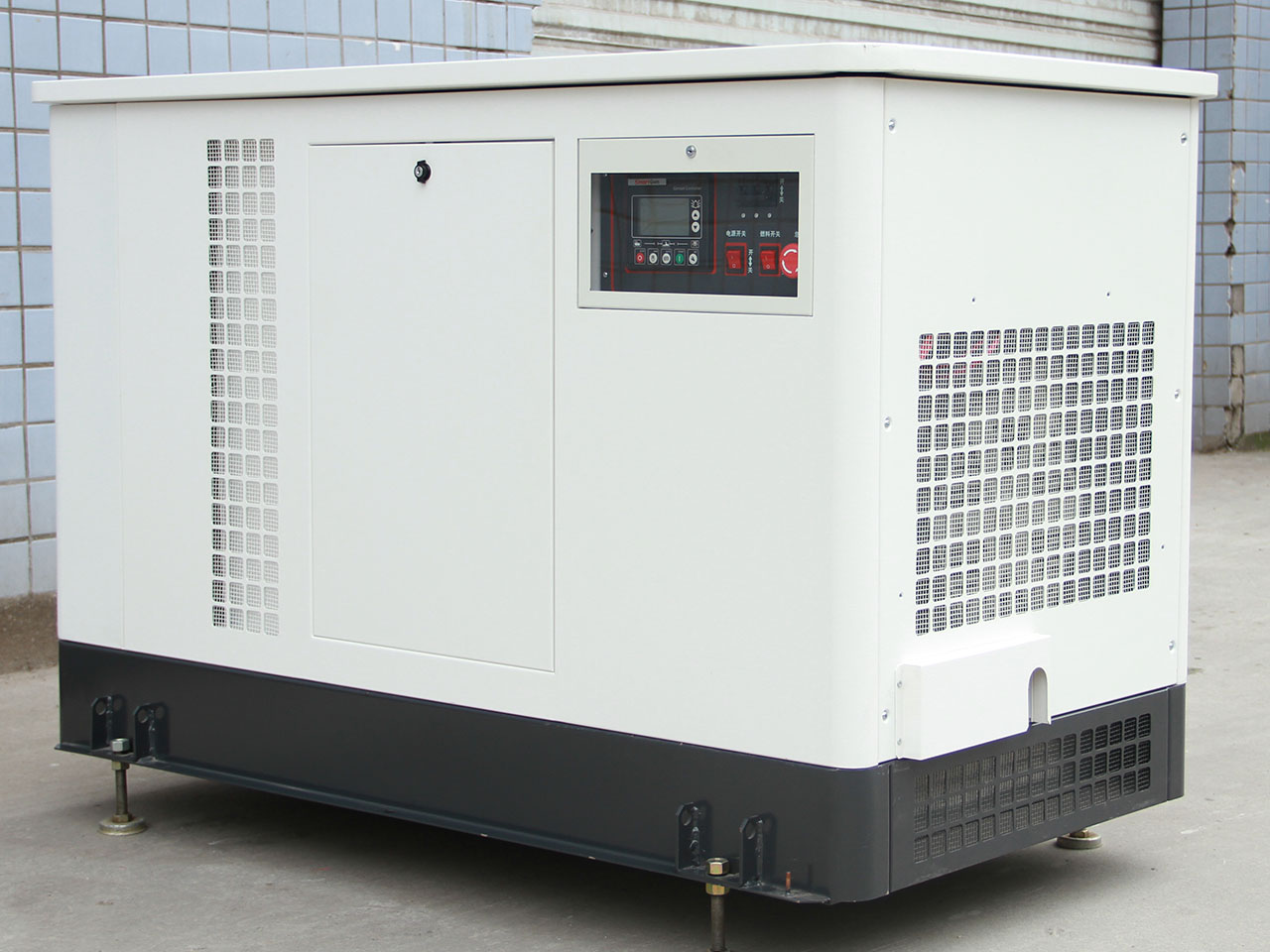By Zach Lazzari | Published Mar 14, 2024 3:00 PM
We may earn revenue from the products available on this page and participate in affiliate programs. Home Generator Cost

Photo: Zach Lazzari for Bob Vila
Generators offer a portable power source that can run everything from appliances to power tools when plug-ins aren’t available. They play an important role in RV travel and off-grid living and make it possible to build with power tools and machinery.
I put several generators through a series of hands-on tests in a roundup of the best generators, and of all the options, the Westinghouse iGen4500 portable generator proved itself as a worthy portable unit that offered electricity at low decibel levels. My testing focused on ease of use, starting process, controls, readings, outlet options, and performance in varying temperature conditions. I used it to run a travel trailer and several power tools—a grinder and saws—and to charge a battery bank.
While there are plenty of portable generators of varying sizes on the market, the Westinghouse iGen4500 is an excellent choice for versatility, portability, and power output. Keep reading to learn why this model is hard to beat.
Photo: Zach Lazzari for Bob Vila
Get the Westinghouse iGen4500 peak watt portable generator at:
The Westinghouse iGen4500 peak watt generator is a portable generator designed to run at a peak of 4,500 watts. At that wattage, it’s capable of powering a microwave or multiple small appliances at a campsite or in an RV. It could also run a small air conditioner, charge batteries, and operate most power tools. For my testing, I ran a small refrigerator and boiled water in an Instant Pot without overloading the generator.
This generator features a 30-amp plug for RVs and special appliances, in addition to two standard 120V outlets. I found starting the generator to be a breeze via any of the three options: the push button, the pull cord, or the remote control. The “on/off” switch is bright red, making it easy to quickly locate. The display shows the remaining runtime, the available fuel, the power output, and the lifetime hours run. Convenient handles allowed me to easily lift the generator with the help of another person, while a slide-out handle made wheeling it to another location just as simple.
While many generators have a relatively easy setup process, the setup for this model was especially uninvolved. It pretty much came ready to begin use, with the biggest task being adding the oil since the unit came dry, as do most generators. After unboxing, I set the generator on a level surface and filled it with the appropriate amount of oil; it was a nice touch that a container of oil and an oil filter were included. Next, I filled it with gasoline and connected the battery cables. The battery was already charged when the generator arrived, but if the battery isn’t charged, it is easy to start. With these simple steps complete, the generator was ready for me to use.
If you happen to move the generator using the handle and wheels, allow it to rest a few minutes before starting it. The angle at which you move the unit will displace the oil, and it’s important to let everything settle on even ground before operating the generator. Remember not to move the generator while it is running either.
Photo: Zach Lazzari for Bob Vila
Starting, stopping, and operating the Westinghouse iGen4500 portable generator doesn’t require any special skills. During my testing, I simply had to flip the red button to the “on” position, turn the fuel switch to the “on” position, and press the start button to fire the motor. I let the motor run for a few minutes to warm up before plugging in any cords. While the motor runs under a load, it’s a good idea to monitor the readings so you have an idea about runtime and power usage. Otherwise, this is the entire operating procedure for the motor and power supply.
The extendable handle is located on the bottom of the generator, which makes it simple to move. I simply pushed the handle button to release and fully extend the handle. When I lifted the handle, it engaged the wheels, and I rolled the generator smoothly across the ground. Once I moved the generator to the new location, I retracted the handle with ease as well. The top handles also make it easy for two people to lift and move the generator.
Gasoline engines tend to perform well in colder conditions once they are started and warmed up; however, getting them started in the first place can sometimes be an issue. I started and ran this generator in below-freezing temperatures. It fired up immediately without any hesitation or surging for several hours. The fuel consumption was also minimal while I was running a moderate load. I never burned through an entire tank of fuel and was impressed by the efficiency.
I also ran this generator in warmer conditions—about 60 degrees Fahrenheit—and it performed flawlessly. I suspect it would continue working well and without issue in hotter climates, although I would place it in a shaded area while expecting it to perform in very hot conditions. Overall, the performance of the Westinghouse iGen4500 was fantastic. I will be using this generator to run my travel trailer on future camping trips, as it can charge my battery bank and also power a bigger appliance as needed.
The quiet nature of this generator is another excellent feature. Noisy generators are disturbing, and I prefer to keep a quiet campsite. This model is much quieter than other generators I’ve used, and it was pleasant to have at the campsite.
The Westinghouse iGen4500 generator is available in single or dual-fuel options. I tested the single-fuel model, which currently retails for around $800. The price is competitive with that of other generators of similar capacity, and I found that many reviewers agree with my assessment that this model is a great value for a high-performance generator. Savvy shoppers might find it even cheaper during sale events, but even at its present retail price, it provides campers and workers a reliable and portable power source.
The answer to this question lies in your specific power needs. Most RVers who want portable power and a quiet unit will find this 4,500-watt model to be an excellent choice. It will also serve contractors and off-grid properties well. For anyone charging a battery bank, the generator offers more than enough power to get the job done. This model has certainly been a perfect fit for my travel-trailer camping needs.
However, for larger appliances such as dryers and big air conditioners, shoppers will want to consider a generator with more wattage. Units running 8,000 watts or more are ideal for heavy-duty use. Contractors and off-grid cabins running bigger appliances and machines often opt for these higher-output generators.
Photo: Zach Lazzari for Bob Vila
Get the Westinghouse iGen4500 peak watt portable generator at:
Zach Lazzari is a freelance writer splitting time between the great outdoors, travel, and DIY projects ranging from camper builds to home renovations and maintenance. His home base in Montana is the perfect testing ground for winter products and snow equipment. With over a decade of professional writing experience, he also covers a variety of other projects and maintenance topics for BobVila.com.
Articles may contain affiliate links which enable us to share in the revenue of any purchases made.
Registration on or use of this site constitutes acceptance of our Terms of Service.

2500 Watt Generator © 2024 Recurrent. All rights reserved.